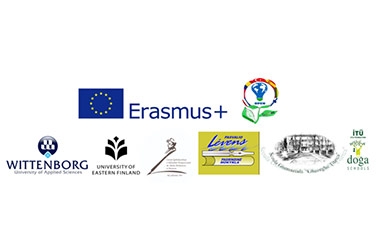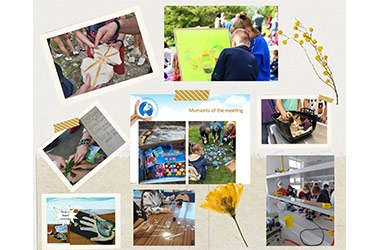Wittenborg Online News!
Successful Science Missions in Erasmus+ Eco-System of Open Science Schooling Project
Successful Science Missions in Erasmus+ Eco-System of Open Science Schooling Project
Successful Science Missions in Erasmus+ Eco-System of Open Science Schooling Project
https://www.wittenborg.eu/successful-science-missions-erasmus-eco-system-open-science-schooling-project.htm
Science Missions Bring Major Social Impacts to Local Communities
Erasmus+ Eco-systems of Open Science Schooling (Eco-OSS) project, officially launched in October 2020, has now come to its final year. For the past 2 years, with the ultimate mission of helping secondary schools and science teachers to transform traditional science teaching to practical and open-space learning, partner schools from Lithuania, Romania, Spain and Turkey have conducted various interesting science missions and activities in their respective countries. The successful activities have not only enhanced the learning of science on the part of the students, but have also brought big social impacts to the local communities. You can read more about the school missions here.
In this final year of the project, project team members will interview significant participants of the missions to get to know more about their missions and gather feedback. The outcome of this interview will be valuable assets to the development of the project’s three intellectual outputs, which are a guide for the schools about establishing collaboration with the stakeholders including governments, communities and businesses, policy guidelines for educational authorities and research papers.

Final Stage Interviews Gain Feedback on Project
Thanks to the strong connection and harmonious collaboration between the knowledge partners (Wittenborg University of Applied Sciences and University of Eastern Finland) and quality partner (Working with Europe/Treballant amb Europa Associació), as well as practice partners from all four countries, a total of 24 interviews were carried out successfully during a period of 1 month between Jan. and Feb. 2022.
All interviewees were direct stakeholders who closely participated in conducting the missions and consist of four groups: School Teachers, Student team captains, School Administrators and External Stakeholders. Due to the pandemic, all interviews were conducted via online Teams meeting or written answers of pre-designed questionnaires in English or the respective languages, sent by email.
Interview protocols for each stakeholder group were carefully designed to draw out the most significant insights from the missions to develop intellectual outputs for the project. A diverse set of questions related to topics such as perception about science, plan and execution of missions, roles of games and social media, schools as agents of change, involvement of external stakeholders and experience of building eco-systems of open science schools was covered in the interview protocols.
The missions were completed beyond the expectation of many participants, especially teachers and students, and they were excited to share their experiences. Students in Turkey, for example, approached the interviews in a creative way to share their hands-on experience of building eco-systems and suggested conducting the documentary interviews themselves and making a video recording.
In addition, lead researcher from Wittenborg Dadi Chen after conducting several interviews said: "It is an unexpectedly long interview, but the meeting is worth our time with significant information for developing intellectual outputs of the project." He was particularly impressed with the contribution and vision of one school partner, a university professor who regularly delivers lectures to secondary and primary school pupils and joins their activities to inspire them to explore science.
The practice partners are currently working on their second missions, while the main focus of the knowledge partners in coming weeks is on the data analysis and development of first drafts of intellectual outputs.
WUP 3/4/2022
by Hanna Abdelwahab with major contributions from Thi Ngoc Tram La
©WUAS Press
579 words